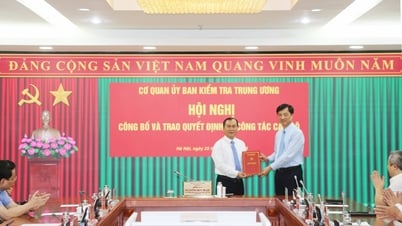Battery storage systems play an important role in the transition from stable fossil fuel sources to renewable energy sources with power generation characteristics that vary according to natural conditions (wind speed, solar radiation intensity, etc.). Battery storage systems help balance electricity supply and demand, minimize interruptions due to the instability of renewable energy sources such as solar and wind power, and improve the reliability and flexibility of the grid. Battery storage systems can also provide ancillary services such as voltage and frequency control, congestion management, improve the efficiency of power system operations, and optimize power sources such as: reducing the number of shutdowns/startups of thermal power plants, reallocating capacity between types of power sources, reducing the operating hours of expensive power sources, etc., thereby reducing the total cost of purchasing electricity for the entire system.
According to the adjusted power plan VIII approved by the Prime Minister in April 2025, the battery storage system will be developed to serve the system's needs and combine renewable energy, distributed near wind and solar power centers or on the power system at load centers. By 2030, it is expected to reach a capacity of about 10,000 - 16,300 MW and by 2050, it can reach more than 95,983 MW to match the high proportion of renewable energy.
BESS battery storage is a type of electrical energy storage, charging and discharging to generate electricity when the power system needs it, playing an important role in balancing the load and ensuring stable operation of the power system. With different technical characteristics and functions compared to traditional power plants, the centralized BESS battery storage system needs a different electricity price mechanism compared to traditional power plants.
Recently, the Ministry of Industry and Trade has issued Circular No. 09/2025/TT-BCT and Circular No. 12/2025/TT-BCT stipulating the method of electricity generation price framework and determining electricity generation price for storage battery systems combined with renewable energy implemented by solar power plant owners according to the provisions of the adjusted Power Plan VIII (concentrated solar projects must install storage batteries with a minimum capacity equal to 10% of the project's installed capacity, stored for 2 hours).
For battery storage systems invested by EVN Power Corporations as a means of control on the grid, the Ministry of Industry and Trade has issued Circular 17/2025/TT-BCT regulating the method of recovering this cost.
Thus, in the case of a BESS battery storage system with a separate investment focus, there must be an electricity price mechanism to attract investment. The draft Circular stipulates the method for determining the electricity generation service price of the BESS battery storage system; the main content of the proposed power purchase contract applies a two-component price mechanism including: (i) capacity price, calculated based on the availability and readiness level of electricity generation of the BESS system; and (ii) electricity price, depending on actual electricity output. This mechanism is similar to the mechanism for pumped storage hydropower plants that are also being developed by the Ministry of Industry and Trade.
The development of this Circular aims to ensure a transparent and public electricity price mechanism, in accordance with current legal regulations, and to create favorable conditions for attracting investment, supporting the safe and efficient operation of the power system, and improving the quality of electricity.
Source: https://moit.gov.vn/tin-tuc/phat-trien-nang-luong/bo-cong-thuong-xay-dung-quy-dinh-ve-gia-dich-vu-phat-dien-cua-he-thong-luu-tru-nang-luong-bang-pin-bess-.html







![[Photo] General Secretary To Lam attends the 80th anniversary of Vietnam's diplomacy](https://vphoto.vietnam.vn/thumb/1200x675/vietnam/resource/IMAGE/2025/8/25/3dc715efdbf74937b6fe8072bac5cb30)


























































































Comment (0)